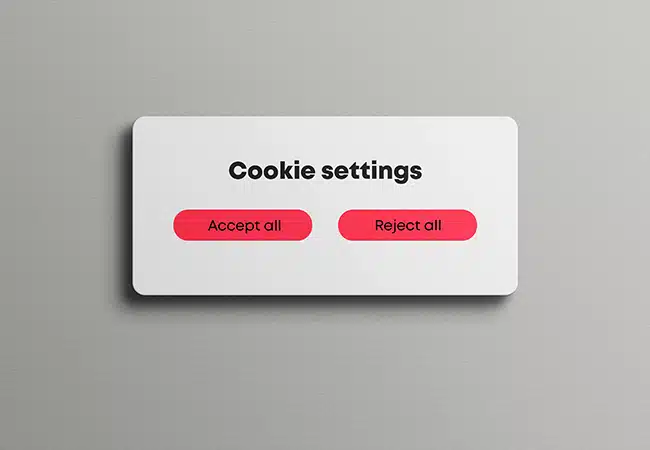Convenience over compliance: The cost of bad cookie banners
Posted: October 18, 2023
Among multiple digital touchpoints, cookie banners play a crucial role in collecting consent from users. Users encounter cookie banners on their first visit to a website. Factoring in the short attention span of users and the prevalence of consent fatigue, they should not be rushed into easily dismissing it or sharing data uninformed.
Website owners need to design banners that strike a balance between a seamless user experience and adherence to data protection laws.
The primary challenge with designing cookie banners is the absence of a standardized set of rules. Data protection laws merely provide outlines for creating a cookie consent banner. Some companies exploit these not-so-clear rules in their favor, prioritizing convenience for users to easily opt-in over compliance with regulations related to cookies.
Legally, the collection of consent is allowed for purposes related to how websites intend to use user data. If data protection rules relevant to cookie banners are not followed, companies will always find themselves tussling with regulatory bodies and losing user trust. Moreover, reputational and economic damages can’t be disregarded.
Let’s understand the issues with non-compliance cookie banners, their consequences, and why striking a balance between providing a seamless user experience and adhering to data protection laws is important.
Most common issues of poorly designed, non-compliant cookie banners
User convenience over compliance is a scenario in which websites prioritize creating a seamless and user-friendly experience over adhering to cookie-related guidelines set under data protection laws. In their pursuit to avoid disruptions for users, they expose themselves to risks associated with legal compliance.
Some notorious practices organizations follow to create conveniences for users include:
Pre-ticked opt-ins
Pre-selected cookie preferences by default simplify website access for users. Users can quickly gain access to content without having to manually select different types of cookies that are not pre-ticked.
This practice requires them to make adjustments in the cookie selection only if they wish to change the default settings.
It may look convenient, but it prompts users to unknowingly agree to preferences without actively opting in. From a compliance point of view, it conflicts with the data protection principle of obtaining explicit and informed consent.
Dismissable banners with concise information
Dismissable banners are designed to provide users with a less intrusive experience. Users can easily dismiss or close banners to proceed with their interaction on the website.
Overly complex notifications can be off-putting for users. Therefore, these banners present information concisely, so users do not get overwhelmed. Due to a lack of clarity about the types of cookies used and their purposes, the transparency principle featured under most data protection laws remains uncovered.
While brevity enables convenience, the banner succumbs to providing users with essential information and options to manage their preferences. This practice, despite being user-friendly in nature, can impact informed consent and accessibility (especially for users with disabilities) principles stated under data protection regulations.
Generic consent for all cookies
A generic consent banner typically offers a single “Accept All” option that provides convenience in terms of simplicity and quick user interaction. Website owners prefer such banners because the process of obtaining consent is quick and hassle-free.
When conforming to compliance requirements like granular consent, one-size-fits-all consent banners may not allow users to make informed decisions pertaining to data processing activities.
In the absence of granular consent, websites may inadvertently collect unnecessary data. Not having a banner that makes clear distinctions in the types of consent being collected directly impacts the data minimization principle, which requires organizations to collect only the data necessary for the stated purposes.
Potential consequences of prioritizing convenience over transparent user consent
Legal consequences
Findings from our reading about prevalent issues with poorly designed cookies mentioned above state how convenience over compliance results in violations of data protection regulations.
Data subject rights provided under law empower users to take legal action against any organization if their privacy rights are violated. Such actions can lead to lawsuits and cause significant legal costs for the organization.
Regulatory authorities under the particular jurisdiction in which the violation occurred may impose fines for non-compliance. The severity of the fine varies with different data protection regulations. Under GDPR, it goes up to $20 million, or 4% of the worldwide annual revenue, whichever is higher.
CNIL’s imposition of a 150 million-euro fine on Google for not providing users with an equivalent solution to as easily refuse the cookies as they can accept them exemplifies how convenience over compliance can lead to significant legal consequences.
Loss of user trust
Users are increasingly becoming concerned about their safety online and how their data is handled. Amidst this rise of caution and insecurity, a lack of transparent consent combined with limited control for users instills a feeling that their privacy and preferences are not being respected. Repelled by the risk of unwanted data collection, users may worry about the misuse of their information, potentially leading to a loss of trust in the company.
Data security risks
Convenience in consent banners creates the impression that the company doesn’t have adequate data privacy and security standards in place. If a company is not transparent, their data collection practices may be unauthorized or excessive. Unbridled data collection increases the risk of data breaches and exposes sensitive user data.
Ineffective marketing
Lack of granular consent diminishes accurate preferences about users. Without comprehensive user analytics, companies may struggle to target specific user segments and deliver personalized experiences.
If users don’t remember opting for certain preferences on a platform, they would be less receptive to marketing messages.
If users feel insecure about their data privacy, it will drive them to disengage from platforms. Increased opt-out rates from the platform may cause diminished audience size and, consequently, potential business losses.
Balance between seamless user experience and adhering to data protection laws
As crucial as it is to provide convenience to users for easy opt-in, it is equally mandatory to maintain compliance with data protection laws. Without such compliance, data collection using cookie banners remains unlawful.
In our privacy-conscious world, when convenience goes hand in hand with compliance, users are more likely to engage with a platform they trust to handle their sensitive data responsibly. Consumers increasingly value organizations that prioritize data protection, contributing to brand loyalty.
While deviation from norms can cause legal and reputational damage, adhering to the same can provide a competitive advantage. Organizations should dispel the notion that compliance means sacrificing personalization. On the contrary, they can still provide personalized user experiences and make accurate decisions about users while respecting users’ privacy.

Want to learn more about cookie management and compliance?
Download our Data sheet: Cookie management guide to understand how you can achieve genuine cookie compliance.
Our guide delves into three crucial areas:
- Achieving Compliance: Uncover the vital steps needed to achieve genuine cookie compliance and understand its impact on your relationship with data subjects right from their initial anonymous website visit.
- Learn how Cassie is intentionally crafted to oversee every aspect of your data subjects’ consent journey, ensuring complete compliance throughout.
- Explore the essential features and functions that differentiate a strong cookie management platform from the competition, and discover why Cassie is the ultimate choice.

